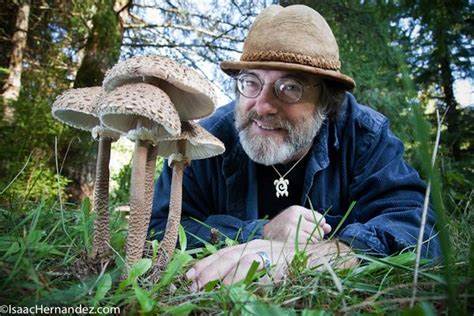
Mushrooms, cherished for their flavor, have an often-overlooked superpower: they’re champions of eco-friendly food production. In this article, we’ll shed light on the sustainable cultivation of mushrooms and how it can significantly reduce the carbon footprint associated with food production.
The Environmental Challenge
As our world grapples with environmental challenges, sustainable food choices are essential, and mushrooms offer a promising solution:
- Low Resource Usage: Mushroom cultivation requires fewer resources like water and land compared to other food production.
- Waste Reduction: Mushrooms are often grown on organic waste materials, upcycling resources that might otherwise go to waste.
- Carbon Footprint Reduction: Mushroom cultivation can have a lower carbon footprint, contributing to a more sustainable food system.

https://th.bing.com/th/id/OIP.4M9FpAGEBvHZ5XLYtOvs6AAAAA?pid=ImgDet&rs=1
Minimal Resource Consumption
Mushrooms shine as a low-impact crop:
- Water Efficiency: Mushroom cultivation is notably water-efficient, using minimal amounts compared to traditional crops.
- Small Land Footprint: Mushrooms can be cultivated vertically or in compact spaces, minimizing land use.
- Short Growth Cycle: Mushrooms have a rapid growth cycle, leading to reduced resource consumption.
Upcycling and Waste Reduction
Mushrooms have a unique ability to thrive on organic waste materials:
- Coffee Grounds: Used coffee grounds can become a fertile medium for growing gourmet mushrooms, reducing coffee waste.
- Agricultural Waste: Agricultural residues like straw and sawdust can be upcycled into mushroom cultivation, decreasing waste.
- Reducing Landfill Waste: Diverting organic waste into mushroom cultivation can help reduce the burden on landfills.
Carbon Footprint Reduction
Mushroom cultivation can contribute to a lower carbon footprint:
- Sustainable Energy Use: Advanced growing facilities often use sustainable energy sources, further reducing the carbon footprint.
- Carbon Sequestration: Some mushroom cultivation methods can sequester carbon in the substrate used for growth.
- Local Production: Cultivating mushrooms locally reduces transportation emissions, benefitting the environment.
The Future of Sustainable Food
Incorporating mushrooms into our diets and supporting sustainable mushroom cultivation is a step towards a greener future:
- Consumer Choices: Choose products made with sustainably cultivated mushrooms, supporting eco-friendly practices.
- Home Growing: Consider home mushroom growing kits to reduce waste and embrace sustainable cultivation.
- Environmental Awareness: Promote awareness of mushroom sustainability and its role in reducing the carbon footprint.
Precautions and Considerations
While mushroom cultivation is environmentally friendly, consider these factors:
- Sustainable Practices: Ensure that mushroom products are produced using eco-friendly methods.
- Local Sourcing: Choose locally sourced mushrooms to reduce transportation emissions.
- Supporting Sustainability: Support companies and initiatives that prioritize sustainable mushroom cultivation.

Photo by Andrew Ridley on Unsplash
Conclusion: Mushrooms – Sustainable Saviors
Mushrooms are sustainable saviors in the world of food production, offering eco-friendly cultivation that minimizes resource consumption and reduces the carbon footprint. By embracing mushrooms and supporting sustainable practices, we can move closer to a more environmentally conscious and sustainable food future.










